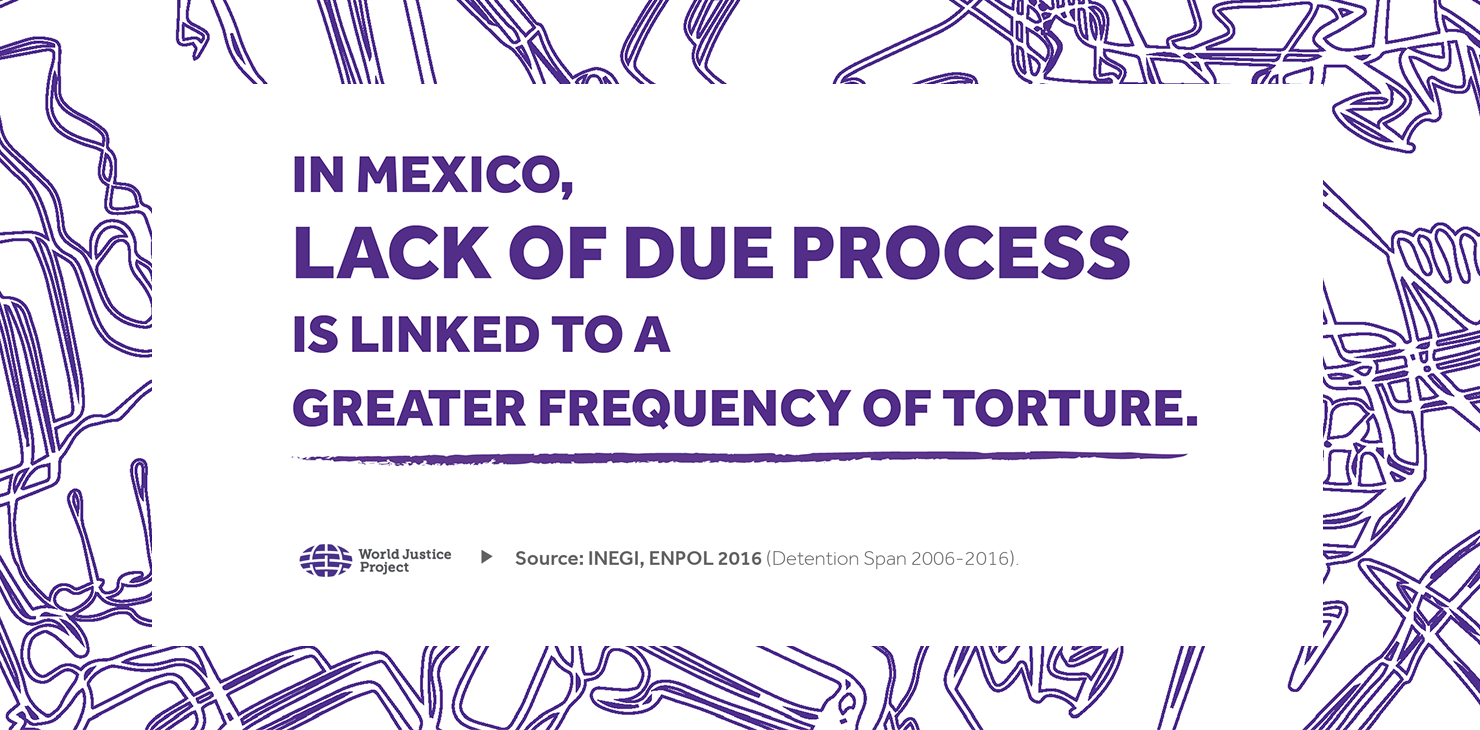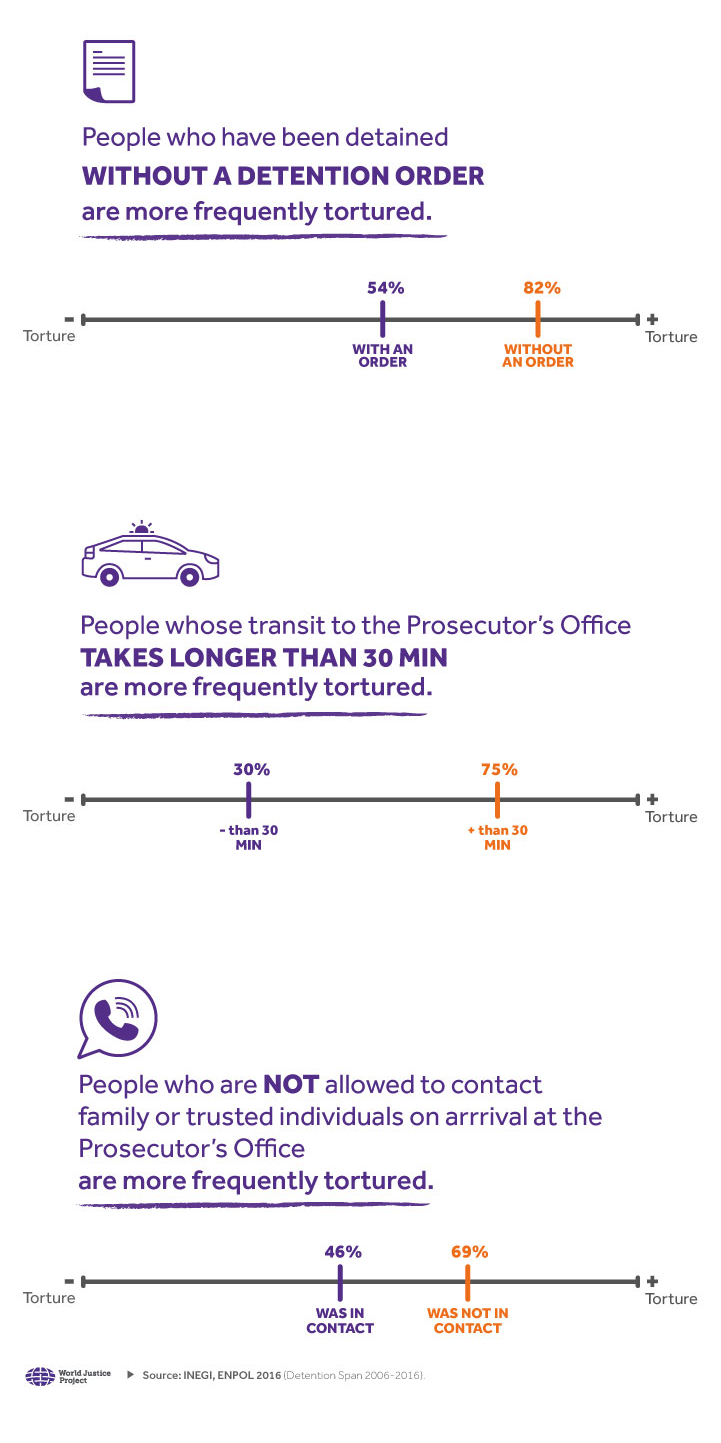

Today on the UN International Day in Support of Victims of Torture 2020, we revisit WJP Mexico's efforts to measure and understand torture at the hands of Mexico's criminal justice system. Learn more below, and download the full report in English or Spanish at worldjusticeproject.mx.
Torture and ill-treatment persist in the criminal justice system in Mexico — in all states. It is perpetrated by both federal and local authorities. Today, 23 years after the United Nations named June 26 as the International Day in Support of Victims of Torture, there is still important work to be done to eradicate these illegal practices.
Preventing torture and ill-treatment requires detection of the circumstances in which it occurs, the arbitrary spaces that typically give rise to it, and recognition of the extent of its consequences. In answer to these needs, the Word Justice Project with the support of the German Cooperation for Sustainable Development designed a methodology to measure the prevalence of torture or ill-treatment in the criminal process in Mexico.
Prior to the National Survey of the Population Deprived of Liberty (ENPOL) carried out by INEGI in 2016, the quantification of torture relied on sources for the number of reports to authorities, the number of investigations, the number of prosecutions, and the number of sentences. In contrast to these sources that often underreport incidence of torture, the WJP and German Cooperation for Sustainable Development analysis based on ENPOL found that from 2006 to 2016, at the national level, 79% of people deprived of liberty were tortured or mistreated during their detention, transfer, or stay in the Mexican Public Ministry.
One of the most important findings of the analysis is the relationship between other violations of due process and the magnitude of torture or ill-treatment in the context of the criminal process. Failure to follow due process rules is associated with a higher frequency of torture. For example: when the detained person is not allowed to contact a family member, the frequency of torture increases by 16%. If the person does not contact a lawyer, the frequency of torture increases by 21%.
This analysis has brought to light the extent to which Mexican authorities can be relied on to adhere to due process provisions established in the Mexican Constitution, and to what extent penal regulations deter authorities from committing acts of torture. Norms and rules on how authorities should behave define the conditions under which interaction with citizens should occur. If these rules clearly establish the parameters to be followed and their compliance is duly observed, then torture and ill-treatment can be prevented.
To learn more about the contexts and conditions in which torture and ill-treatment are carried out in Mexico, which institutional actors of the criminal justice system are involved, and what characteristics are shared by the victims of these illegal practices, you can download the report in English or Spanish here: worldjusticeproject.mx/cuanta-tortura-mx.







